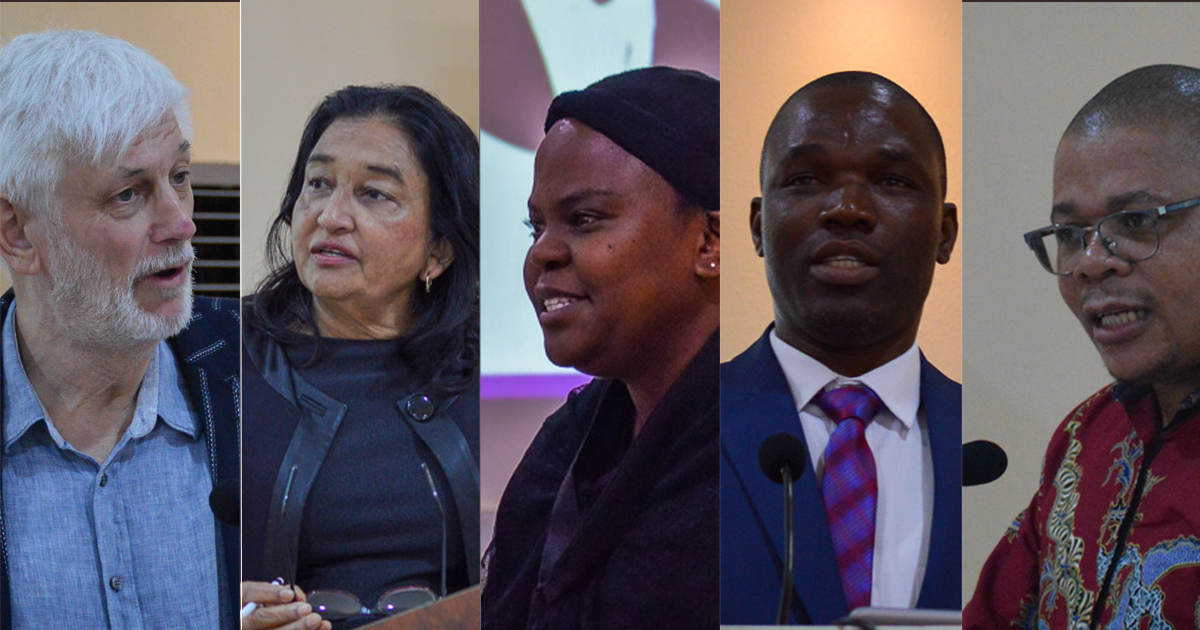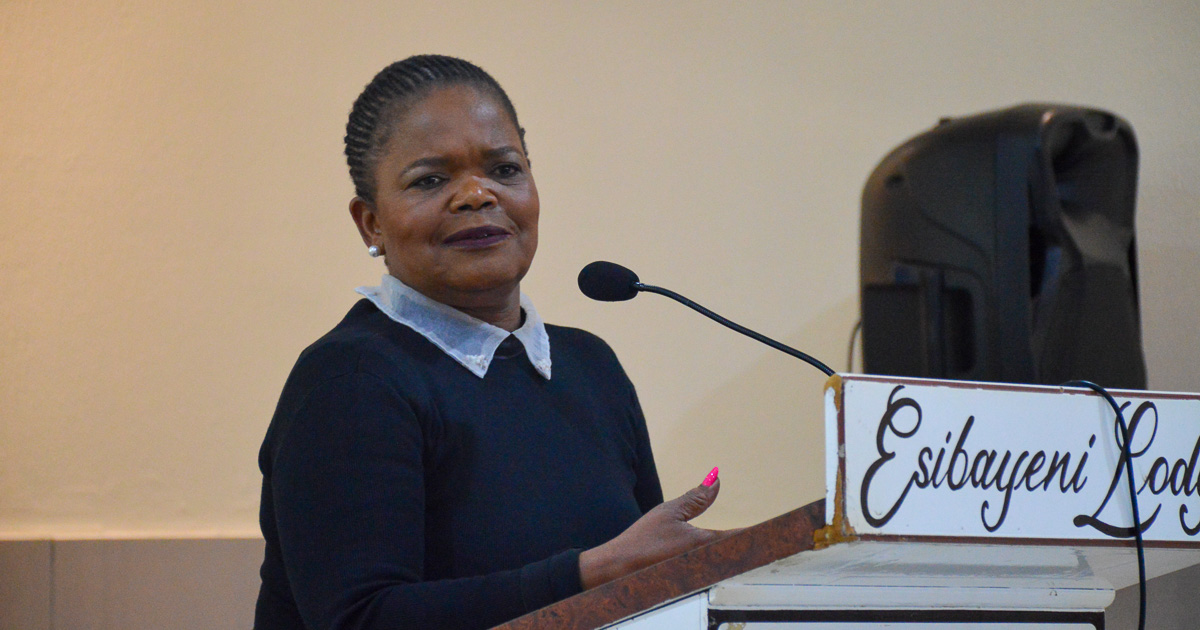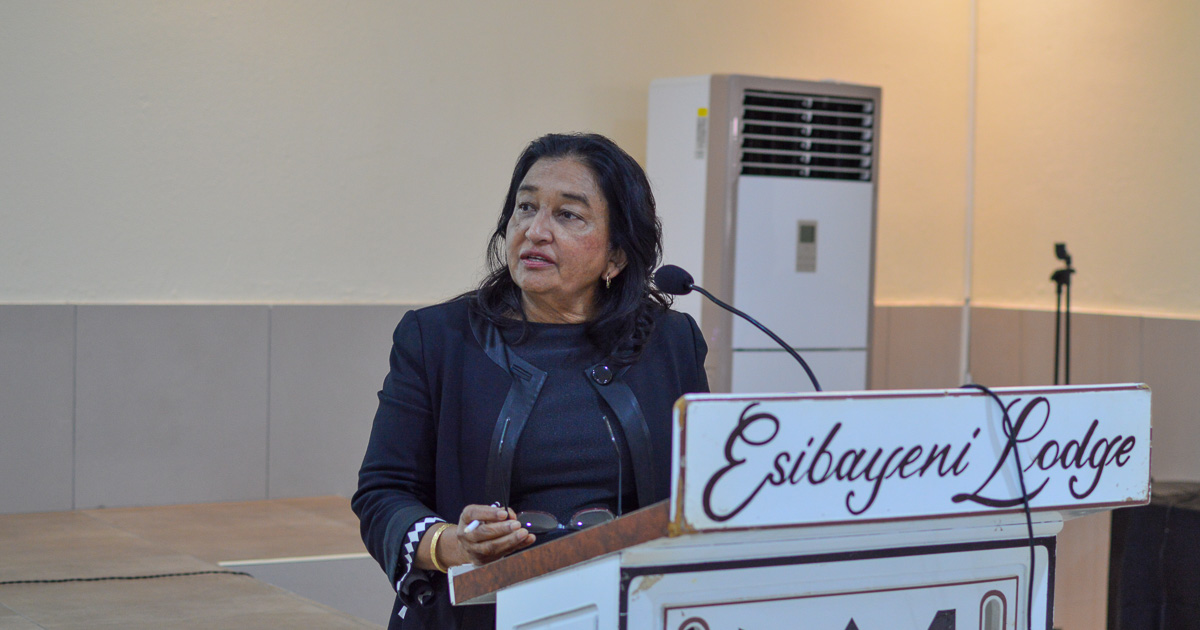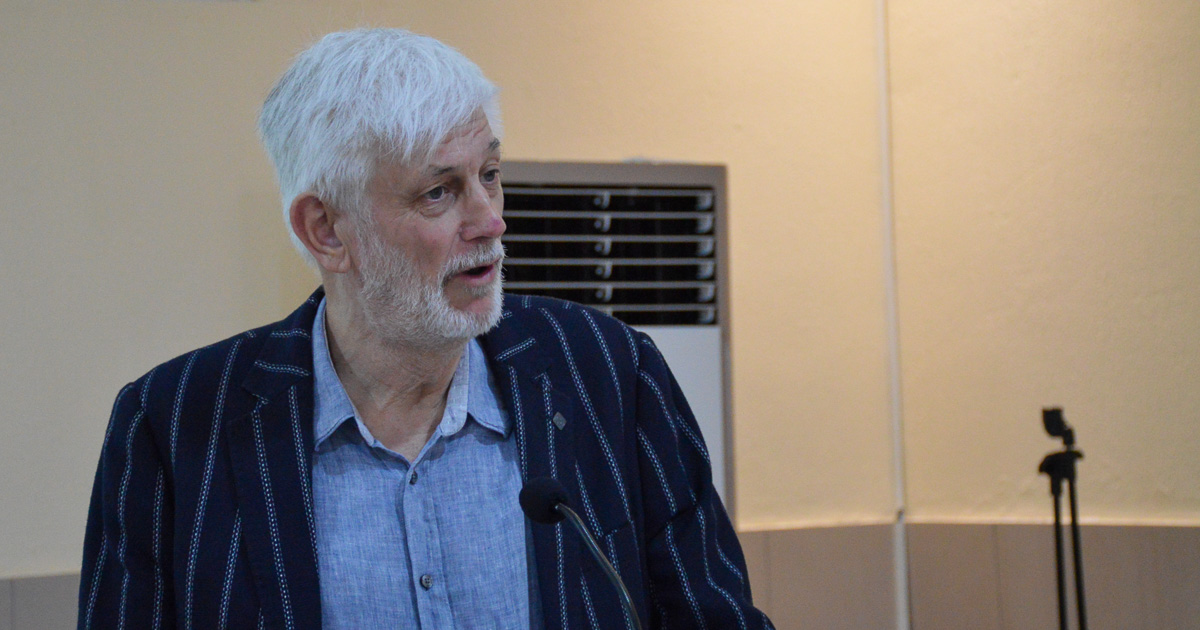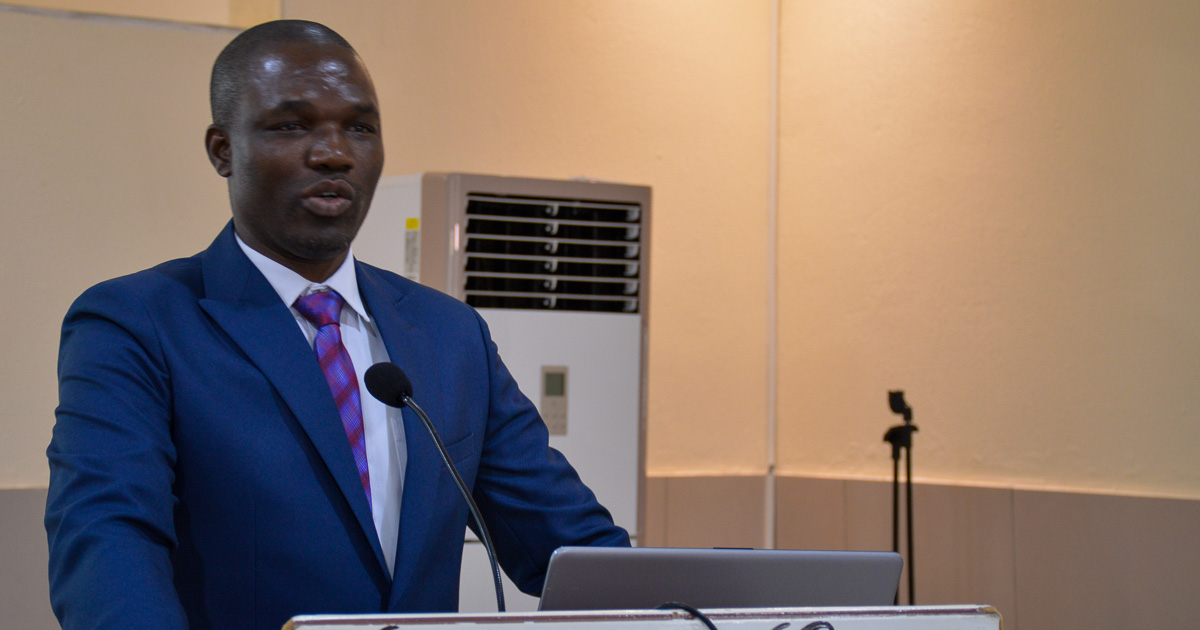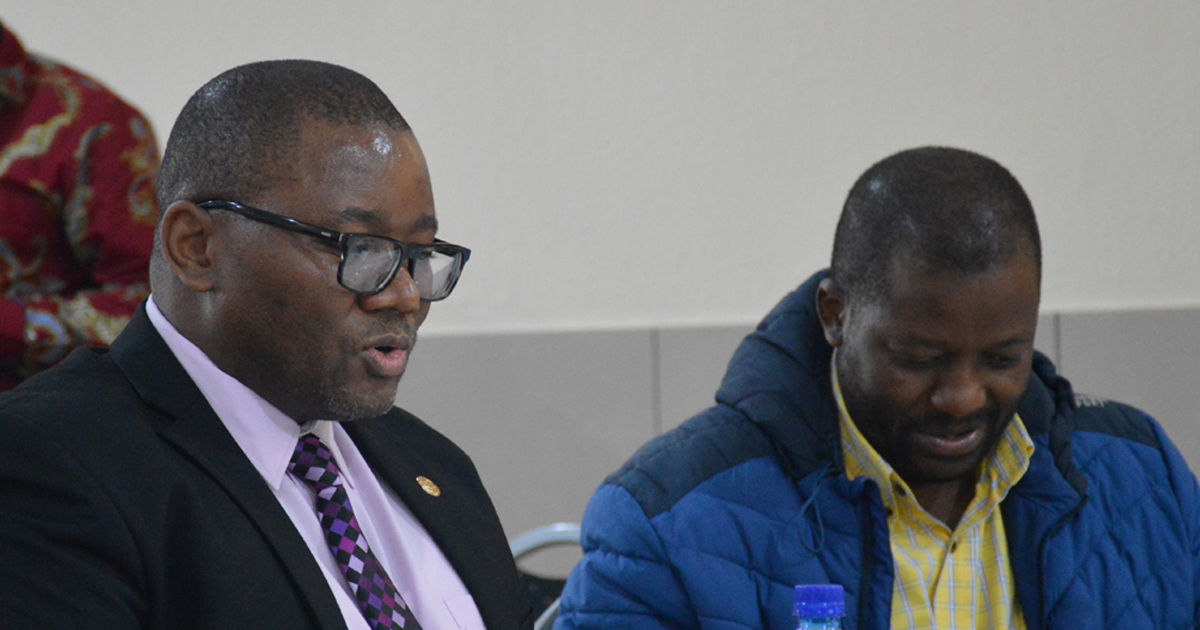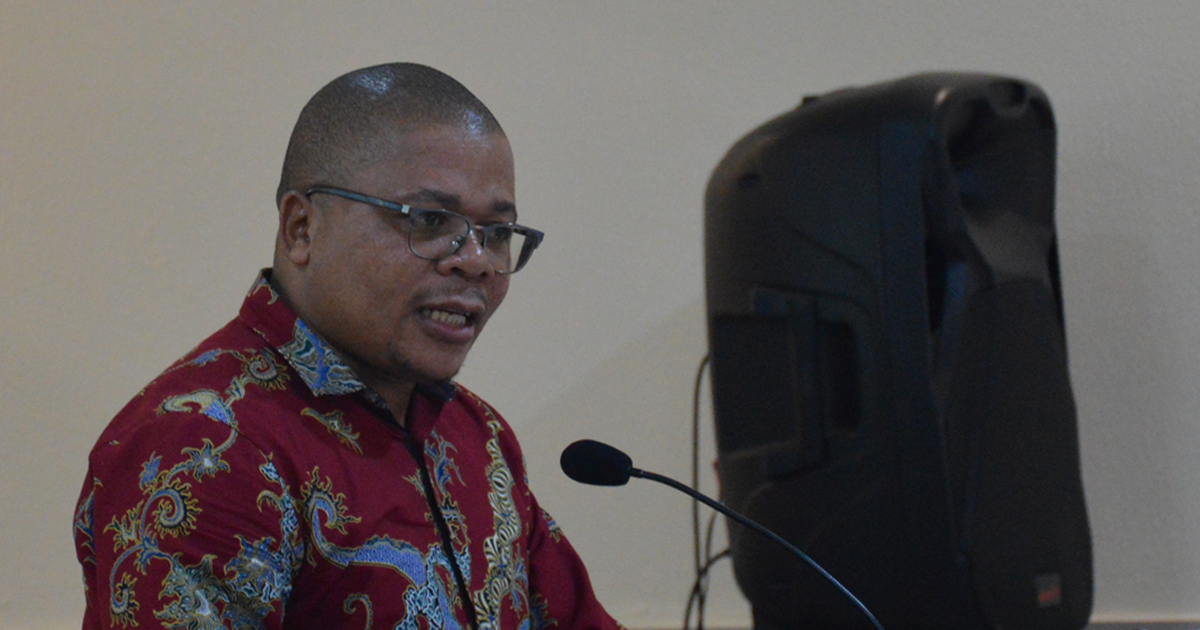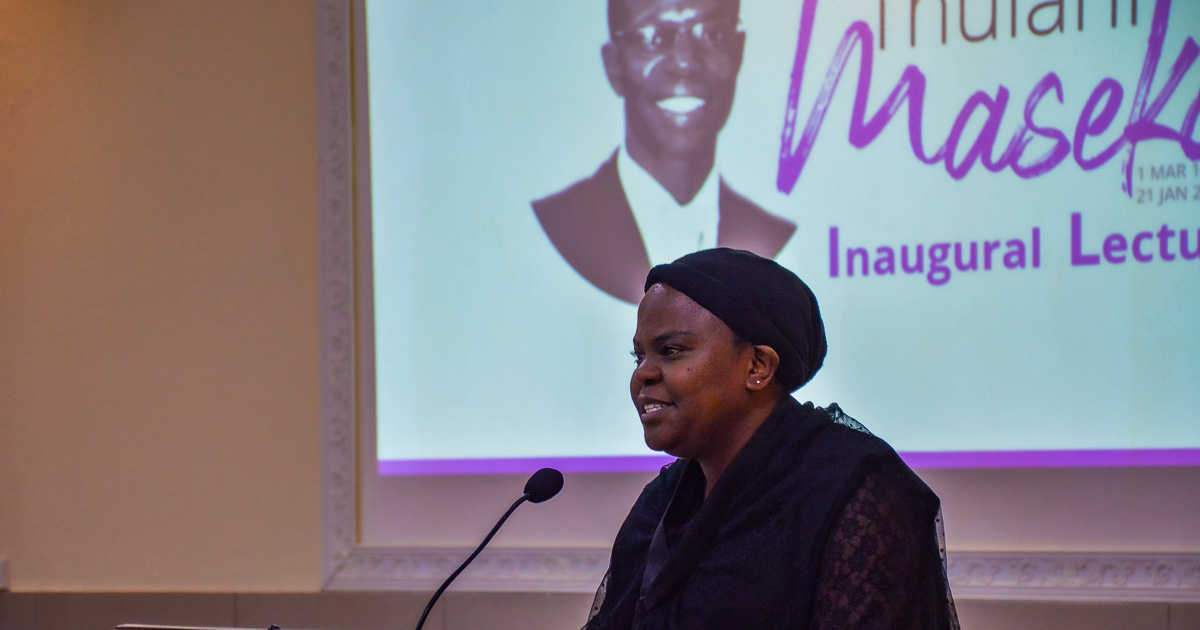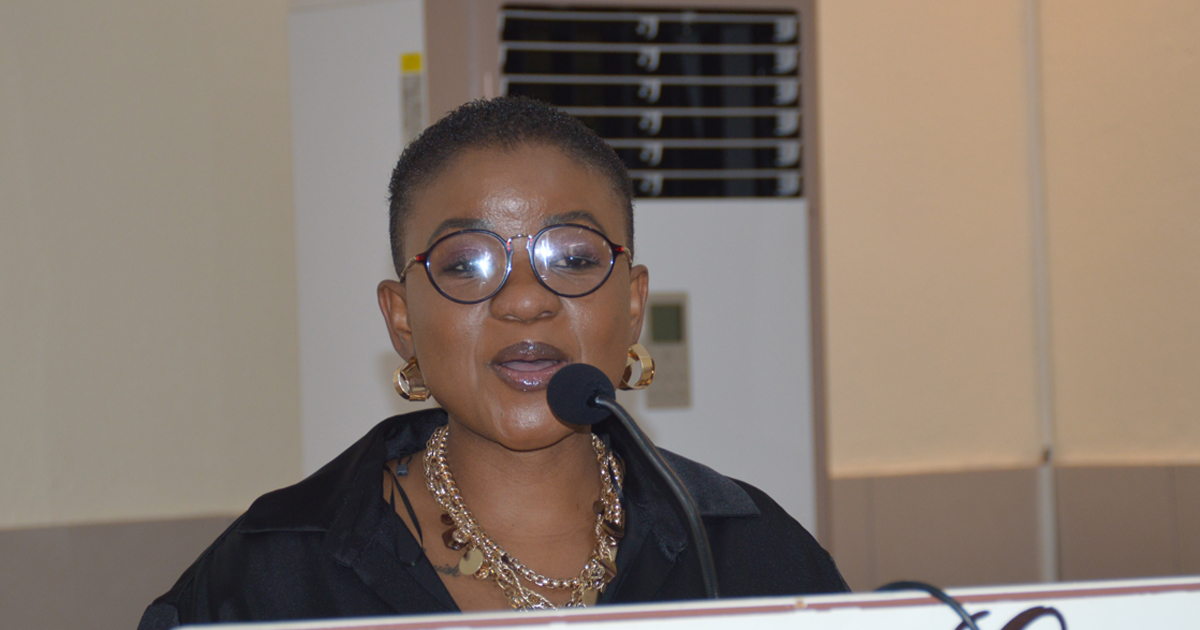The year 2023 marks 75 years since the Universal Declaration of Human Rights was passed, yet the passing of Human rights lawyer Thulani Maseko on 21 January 2023 has demonstrated the long fight for human rights and democracy continues. With nearly half a year passed since the death of Thulani Maseko, there is still no justice and accountability.
“We are caught between hope and fear - hope for democracy and fear of being assassinated.” – Thulani Maseko.
The Centre for Human Rights, Faculty of Law, University of Pretoria (Centre) in partnership with the Law Society of Eswatini, University of Eswatini (UNESWA) and the civil society umbrella body Coordinating Assembly of Non-Governmental Organisations (CANGO), convened the inaugural annual memorial democracy lecture in honour of its alumnus, Thulani Rudolf Maseko on 21 June 2023 in Eswatini.
Bonolo Makgale, Programme Manager at the Centre, in her opening remarks, noted that often at the core of the challenges faced by our continent is the undermining and disregard of the relationship between democracy and human rights. The health of this relationship is highly dependent on the rule of law, which embodies certain standards that define the virtues of a legal system: no leader, political authority or government is above the law. This relationship further depends on constitutionalism. The true separation of powers between the legislature, the executive and the judiciary – the due process or fair hearings for those charged with criminal offences and the overall respect for individual rights.
As members of civil society, we cannot afford to get tired of learning and teaching about these two concepts. They are not merely just legal or political concepts – they are a lived experience of many. For some, where rule of law and constitutionalism is upheld, their lived experience is often the protection of their rights; the freedom to express themselves, associate, protest peacefully and the freedom to live. For others, where rule of law and constitutionalism is disregarded, their lived experience is much grimmer – suppression, threat to life and even hopelessness becomes reality.
Call for investigation to be accelerated and reflections on Thulani Maseko’s life and legacy
Professor Frans Viljoen, the Director of the Centre, recalled that the Eswatini government at the time of Thulani’s killing cautioned against speculation, called for the police investigation to be allowed to go its course, and expressed confidence that in the end, the truth will prevail. He further recalled that many calls were then made, from all corners of the world, that the killing be fully investigated and that those responsible be identified, prosecuted and punished. He called for transparency; and for a progress report, based on government’s own undertaking to ‘allow the investigation’ to run its course. He continued: ‘We are of the view that it is not unreasonable, five months later, to ask the government to provide us – family, friends, colleagues, fellow human rights defenders, concerned citizens, ordinary Swazi’s -- with an update. Where does the investigation stand? What has it yielded? What obstacles have been experienced, if any, what measures have been taken to overcome these obstacles? What are the next steps; and the nature of any ongoing investigation? What are the prospects of bringing those responsible to justice?’
In his reflection of Maseko’s life, Professor Frans Viljoen, the Director of the Centre, remarked on the aptness of remembering Thulani Maseko as a human rights defender, highlighting the gap between human rights declared and human rights experienced. Maseko was a champion for human rights and democracy. He is remembered for being a man who pursued non-violent and peaceful methods of promoting democracy. Viljoen spoke of how Thulani’s character embodied his name: quietness. However, while he was a quiet and gentle man – he was not silent about injustice. Maseko, whose life was interrupted brutally, was a doctoral candidate at the University of Pretoria. His doctoral thesis interrogates the compatibility of modern constitutionalism with African tradition. Interrogating how the right to political participation was exercised and what it meant in traditional African societies. His study shows that leaders (Kings and Chiefs) in African communities were held accountable by the people for their actions. The study suggests that absolutism, and not traditional African values, hampers and inhibits effective and meaningful political participation.
Tanele Maseko, Thulani’s wife, shared fond memories of her husband. She spoke of him being gentle, loving and brave. However, one must not forget that while the world might have lost a human rights champion – a family lost a husband, father and friend. Tanele called for Thulani’s legacy and the fight for democracy in Swaziland to continue.
Calls for democracy and reflections on the rule of law and independence of the judiciary in Swaziland
Thabiso Mavuso, Lecturer and Programme Coordinator at the Institute of Distance Education at UNESWA lamented about the need for constitutionalism in Eswatini and stated that the presence of the constitution did not guarantee constitutionalism. For democracy to be stable and function properly it needs a constitutional framework, one that is people focused, for constitutionalism to thrive, it needs a democratic pedigree.
Beatrice Mtetwa, a human rights lawyer in Zimbabwe, gave reflections on public interest litigation in undemocratic societies. Mtetwa remarked that one of the first targets of undemocratic leaders is the judiciary. Despots prefer a judiciary that will be sympathetic to them and as such, champions of democracy like Maseko would be unlikely choices for the judiciary in autocratic societies. Furthermore, Mtetwa underscored the need for regional collaboration which can serve as a shield of protection for human rights lawyers who are likely to be targeted by undemocratic systems.
The struggle for the rule of law in Eswatini predates the current issues seen clearly during the 2021 unrest. Sibusiso Nhlabatsi, a human rights lawyer in Eswatini, remarked that the rule of law crisis in the country dates back to 1973. The interferences with the judiciary that have occurred in Eswatini are a contradiction to doctrine of separation of powers and ultimately the rule of law.
Judge Dhaya Pillay, retired Judge of the High Court in Kwa Zulu Natal in South Africa, gave the keynote address reflecting on judicial independence and the rule of law in Eswatini, a true test of democracy. In her remarks Judge Pillay reminded us of the importance of political history. The brutal murder of Maseko is a clear case of history repeating itself as it was the case with several anti-apartheid activists.
She reflected on the role that judges play in learning from the lessons of history and the importance of judicial independence; stating that “good judges turn the tide of strife towards democracy. Judges with conscience and imagination, conscientious and clever judges will strive to find appropriate rules of law to apply to circumstances of a case to achieve justice”.
Judge Pillay offered reflections on the ideals of the rule of law, democracy, constitutionalism, human rights, elections and judicial independence through a creative simulation of the case of the convicted opposition Members of Parliament Mduduzi Bacede Mabuza and Mthandeni Dube in which she effectively reviewed this case pointing out inconsistencies and the pitfalls of a judiciary that is not independent. Judge Pillay concluded that contrived prosecutions of political opponents are symptomatic of democracy in recession and eventually the truth would prevail in Eswatini.
Calls for Justice for Thulani Maseko, reforms and democracy in Eswatini
Bonolo Makgale expressed the view that there is an assumption that the line between democracy and authoritarianism is binary however there is a dangerous line being ignored, which is the line of indifference. She emphasised that it is a crucial time for democracy on the continent and we cannot afford to have a culture of indifference. Lloyd Kuveya, Assistant Director of Centre, encouraged activists and members of the legal fraternity and people of Eswatini to continue to chip away at the autocracy in the nation, till they achieve democracy.
The Centre calls for the following:
- The government should provide transparency and a progress report in respect of investigation into the murder of Thulani Maseko, and accelerate the investigation to bring to book those responsible for his death.
- The government should implement the call of the African Commission on Human and Peoples’ Rights, which urged the Government of Eswatini to ’set up an independent inquiry to investigate the murder of Adv Maseko with a view to apprehending, prosecuting, and punishing those found responsible for his death’; and to ‘take legislative or other measures (institutional, administrative, policy, public awareness etc.), to ensure that human rights defenders are guaranteed the right to live a life free from the threat of violent attacks.’
- The government should implement the call of the Southern African Development Community call for a ‘swift, transparent and comprehensive investigation’ into the circumstances of Thulani Maseko’s death, and to “urgently initiate” a peaceful national dialogue with pro-democracy groups as a means of strengthening democracy.
- The Eswatini government must effect to the Commission’s decision in Lawyers for Human Rights v Swaziland, to ratify, The Protocol establishing the African Court on Human and Peoples’ Rights, The African Charter on Democracy, Elections and Governance and any of the three new protocols to the African Charter – older persons; persons with disabilities, and social security and assistance AU treaties, and to effectively domesticate those to which it has already committed itself.
For more information, please contact:
Mr Lloyd Kuveya
Assistant Director
Lloyd.kuveya@up.ac.za
Ms Bonolo Makgale
Programme Manager: Democracy and Civic Engagement Unit
bonolo.makgale@up.ac.za

